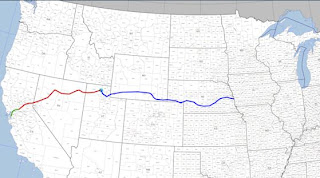Although the Industrial Revolution reached the United States
in the early 1800s, most Americans still lived on farms. However, after the
Civil War, industry rapidly expanded, and millions of Americans left their
farms to work in mines and factories. Factories began to replace smaller
workshops as complex machinery began to substitute for simpler hand tools. By
the late 1800s, the United States was the world’s leading nation. By 1914 the
nation’s gross national product was eight times greater than it had been in
1865 when the Civil War came to an end.
There
were two necessary factors which affected the development of American industry,
natural resources and human resources. An abundance of raw materials was one
reason for the nation’s success. The United States had vast natural resources,
including timber, coal, iron, and copper. This meant that American companies
could obtain them cheaply and did not have to import them from other countries.
The human resources available to American industry were as important as natural
resources in enabling the nation to industrialize rapidly. Between 1860 and
1910 the population of the United States nearly tripled. This population growth
provided industry with an abundant workforce and also created greater demand
for the consumer goods manufactured by factories.
Natural
resources and labor were important for American companies at that time, but new
inventions and technology were crucial as well. Bell’s telephone and Edison’s
light bulb helped a lot in daily life and industrial development.































